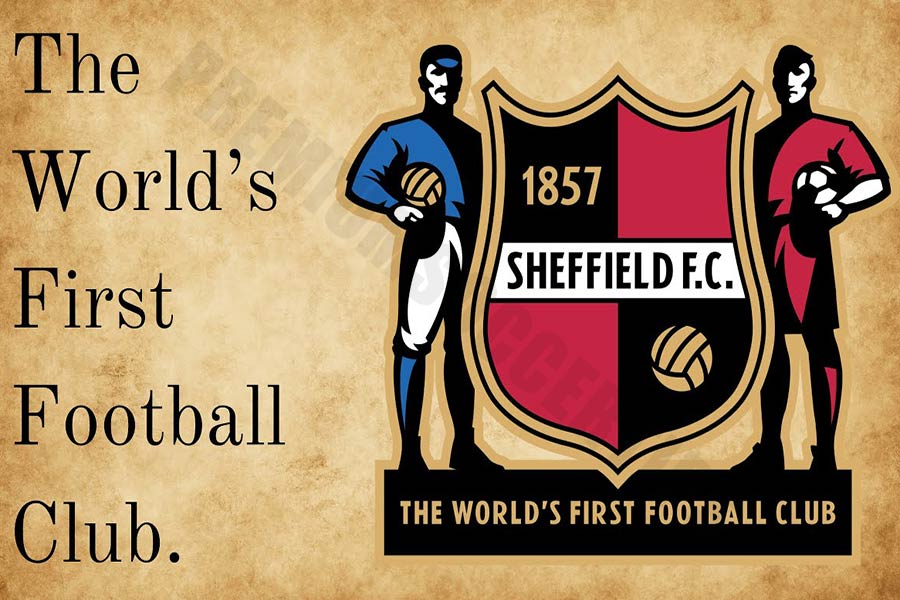Who was the first football team? Explore history
When tracing the origins of the beautiful game, we come across a puzzling question: Who was the first football team? It’s not just about a name or a place; it’s about discovering the pioneers who laid the foundations for the world’s most beloved sport. Join us as we delve into the history books to learn about the origins of organized soccer. Get ready to join Premiumsoccertips.net as we uncover the story of passion, innovation, and legacy that planted the seeds for the global phenomenon that soccer has become.
Tracing the origins: Who was the first football team?
Our journey to discover the first football team in history takes us back to the mid-19th century, a period when football as we know it was still in its infancy. Contrary to popular belief, the birth of football teams was not a single event but a series of evolutionary steps in the development of the sport. Sheffield Football Club, founded in 1857, is recognised by most historians and the International Federation of Association Football (FIFA) as the world’s first and oldest football club. Founded in Sheffield, England by Nathaniel Creswick and William Prest, the club was a pioneering force in shaping the modern rules of the game.

The founding of Sheffield Football Club marked a pivotal moment in the introduction of structured matches, clubs and a codified set of rules for a game that had previously been more like crowd football. The founders themselves drafted the ‘Sheffield Rules’, which played a major role in the development of football, influencing the Laws of the Game that govern the sport today. Notably, these early guidelines introduced concepts such as penalty kicks for fouls, corner kicks and the crossbar.
Interestingly, the founding of the club led to the formation of other football teams, sowing the seeds for the global growth of the sport. Following Sheffield FC, the way was paved for the formation of clubs such as Hallam FC in 1860, also from Sheffield, and later, internationally renowned teams, including Notts County in 1862, recognised as the oldest professional football club still in existence. This historical timeline highlights Sheffield Football Club’s significant impact on the world of football, making it a cornerstone in the sport’s rich heritage.
As can be seen, football tips daily are an important factor for bettors who want to make accurate decisions before each match
The birth of football clubs
The origins of football clubs date back to the sport’s infancy, primarily in England in the mid-19th century. Football, as we understand it today, began to take shape with standardized rules and organized play, which naturally led to the formation of clubs. These clubs were formed by groups of enthusiasts who wanted to play the game regularly, leading to the formation of the world’s first football team. Sheffield Football Club, founded in 1857, is recognized by both the Football Association (FA) and FIFA as the world’s oldest football club still in operation. Founded in Sheffield, England by Nathaniel Creswick and William Prest, the club pioneered several elements of modern football, including free kicks and corner kicks.

The birth of the club marked a pivotal moment in the history of sport, symbolising the widespread human desire for competitive sporting activity and a sense of community. The early birth of these football clubs sparked a global movement. By the late 19th century, football clubs had formed across Europe and South America, laying the foundations for the culture that would become the international football community we see today. Teams such as Notts County, founded in 1862, and other historic clubs emerged, demonstrating the evolution of football from a recreational pastime to a professionally organised sport. These early clubs not only shaped the tactical and regulatory aspects of football, but also fostered a sense of identity, loyalty and camaraderie between fans and players, principles that remain at the heart of football culture around the world.
The first football competitions
- 1871 FA Cup: The first official football tournament, introducing a structured format to the sport.
- 1888 Football League: The world’s first professional football league, featuring regular competition between clubs.
The creation of these competitions played a key role in the growth and popularity of football. Not only did they provide a framework for the sport to operate, they also attracted fans, players and communities, creating a shared identity for both clubs and supporters. As football leagues and tournaments grew, so did the global appeal of the sport, laying the foundation for the international competitions that would emerge in the years to come.
The origins of official football competitions can be traced back to England in the 19th century, cementing football’s status as a structured sport. The creation of these competitions played a pivotal role in transforming football from a casual game into an organised game with rules and regulations.

Notable among the first organised competitions was the Football Association Challenge Cup, commonly known as the FA Cup, introduced in 1871. This competition marked a milestone in the history of football, welcoming teams from different parts of England to compete, thereby promoting professionalism in the sport. The establishment of the FA Cup paved the way for the establishment of football leagues. In 1888, the English Football League (EFL) was formed, becoming the world’s first professional football league. The league began with 12 clubs from the Midlands and Northern England, participating in a regular season in which teams played each other twice, home and away.
19th century football teams
The 19th century was a challenging period for football team formation, a period in which the sport moved from informal local games to organised matches governed by codified rules. The first clubs were often affiliated with schools, universities or local clubs in sport-loving towns. These founding organisations provided the foundation on which the modern global phenomenon of club football was built. Sheffield FC, founded in 1857, claims to be the world’s first and oldest football club. The founding of Sheffield FC not only marked the beginning of club football, but also heralded the beginning of the institutional development of football.

In the latter half of the century, notable teams began to form outside of England, spreading the game across borders and continents. Teams such as the Genoa Cricket and Football Club, founded in Italy in 1893, reflected the growing international appeal of football. However, the structure of the sport during this time was largely informal, with clubs playing friendlies rather than competing in organised competitions. Despite this, these early clubs played an important role in promoting the sport and fostering a growing football culture within their communities.
The formation of the Football Association in England in 1863 was a pivotal moment for football, providing a unified set of rules for clubs to follow. This development allowed for more organised competition and eventually the establishment of domestic leagues by the end of the century. The increase in the number of clubs during the 19th century laid the foundations for the rich and competitive global football scene we know today. Each club from this era has contributed to the sport’s early legacy, playing a pivotal role in football’s journey from local pastime to global spectacle.
Conclusion
When we search for the answer to the question “who was the first football team,” we are taken back to the 1850s, when Sheffield FC was founded in 1857, recognized as the oldest football club in the world. Founded in England by Nathaniel Creswick and William Prest, the club not only played a pioneering role but also laid the foundation for the modern rules and structures of football. From here, the journey of club football gradually spread, turning the sport into a global phenomenon. The legacy of Sheffield FC is a testament to the unifying and evolving power of football through the ages.
See more: At what age do soccer players retire? Factors that determine








